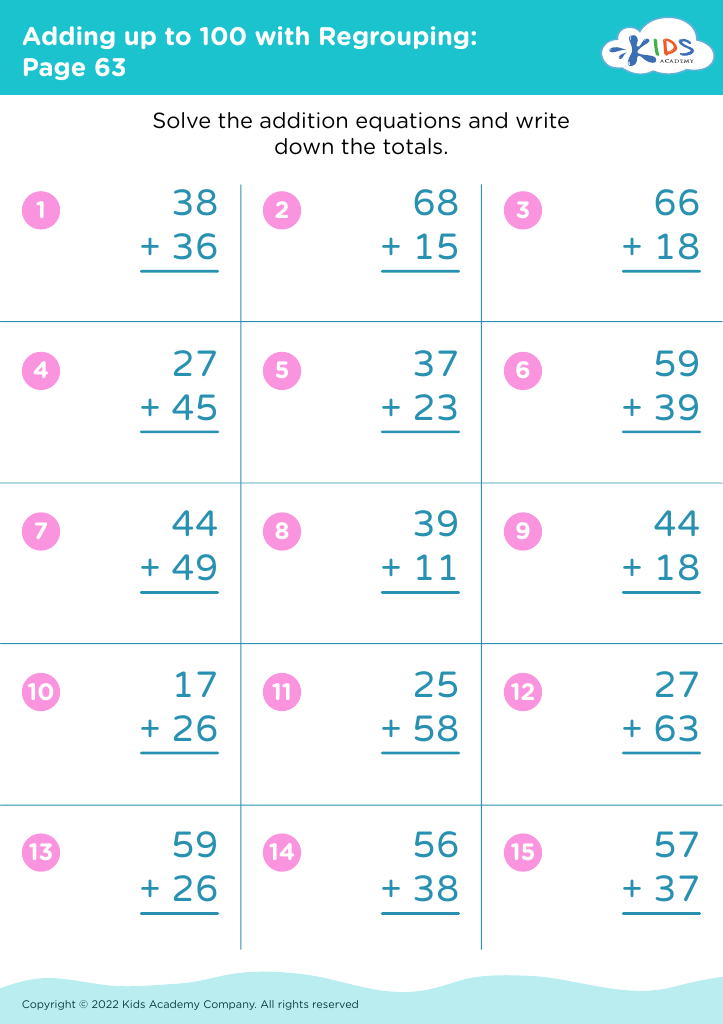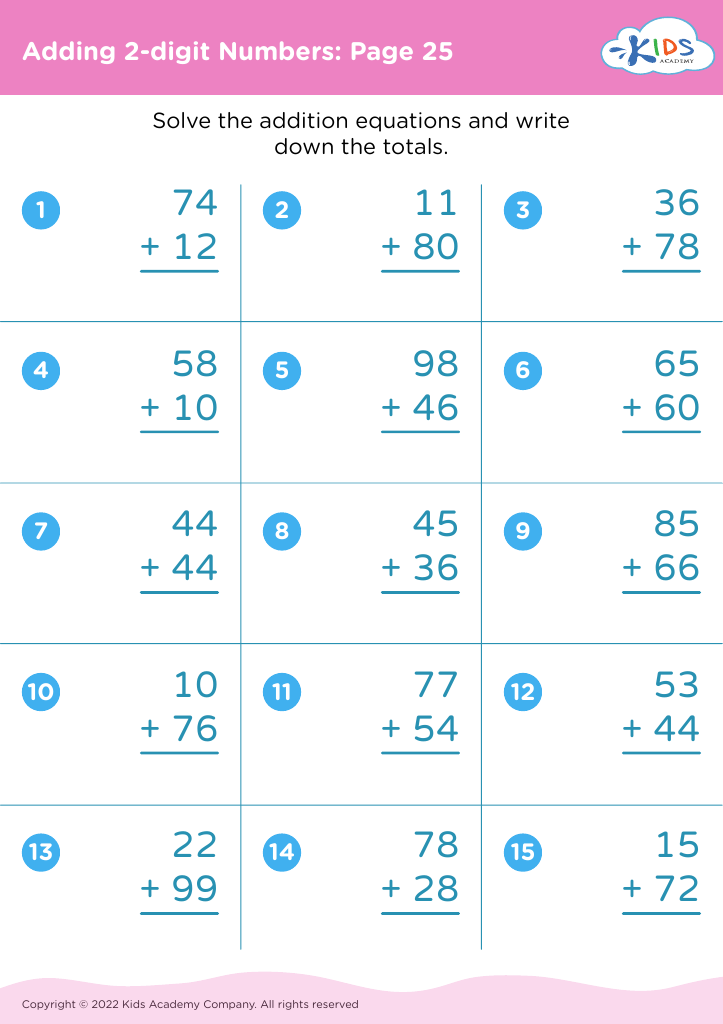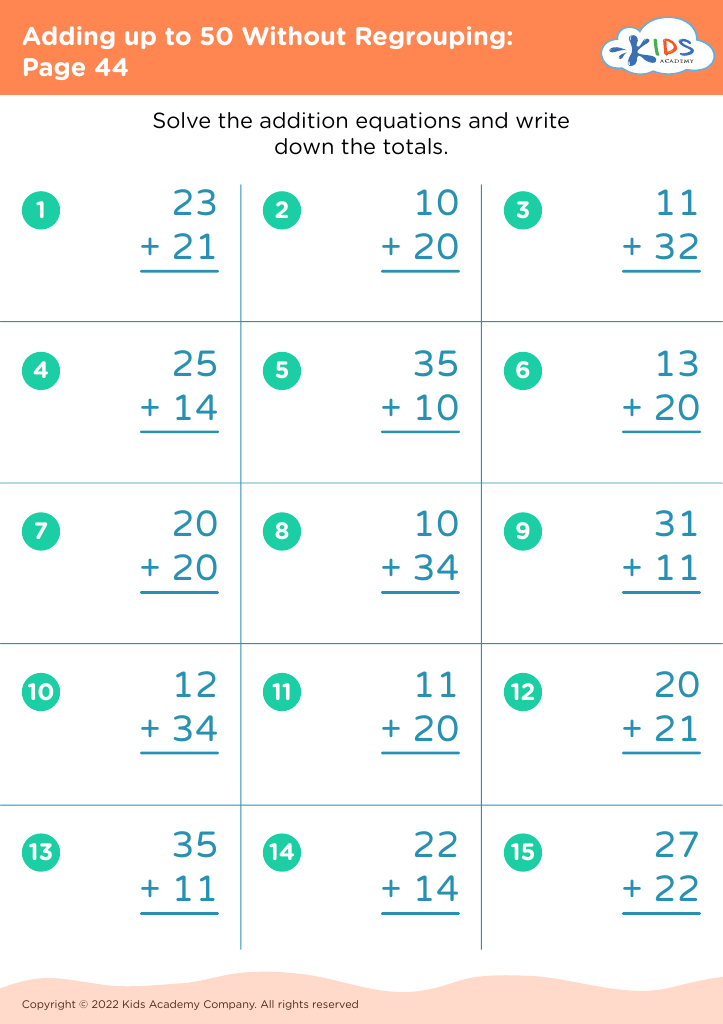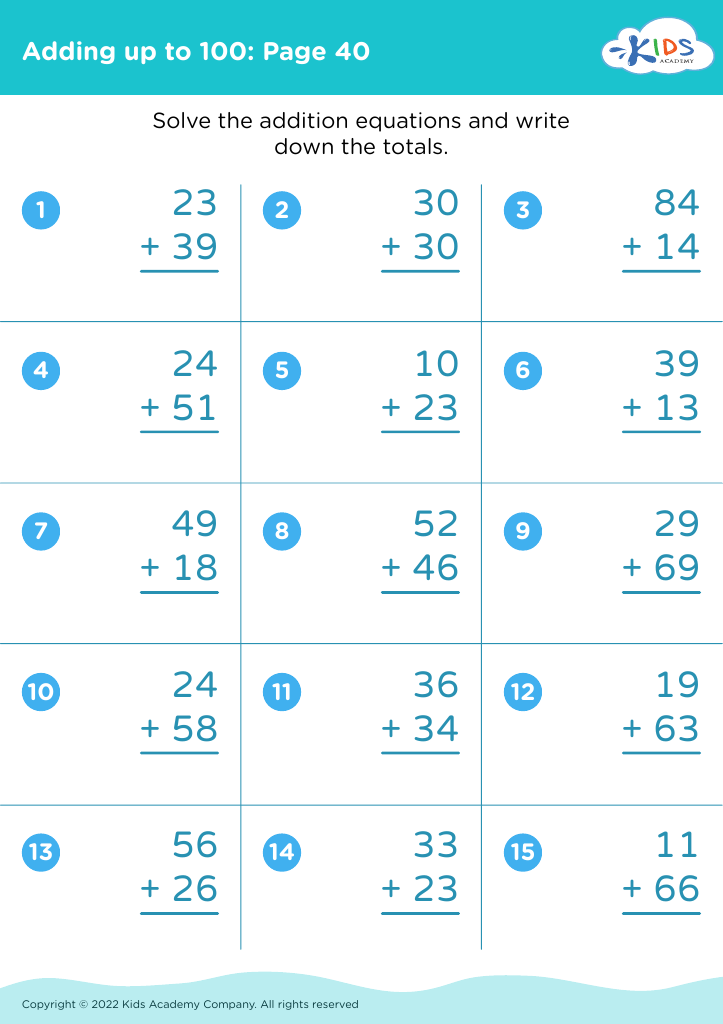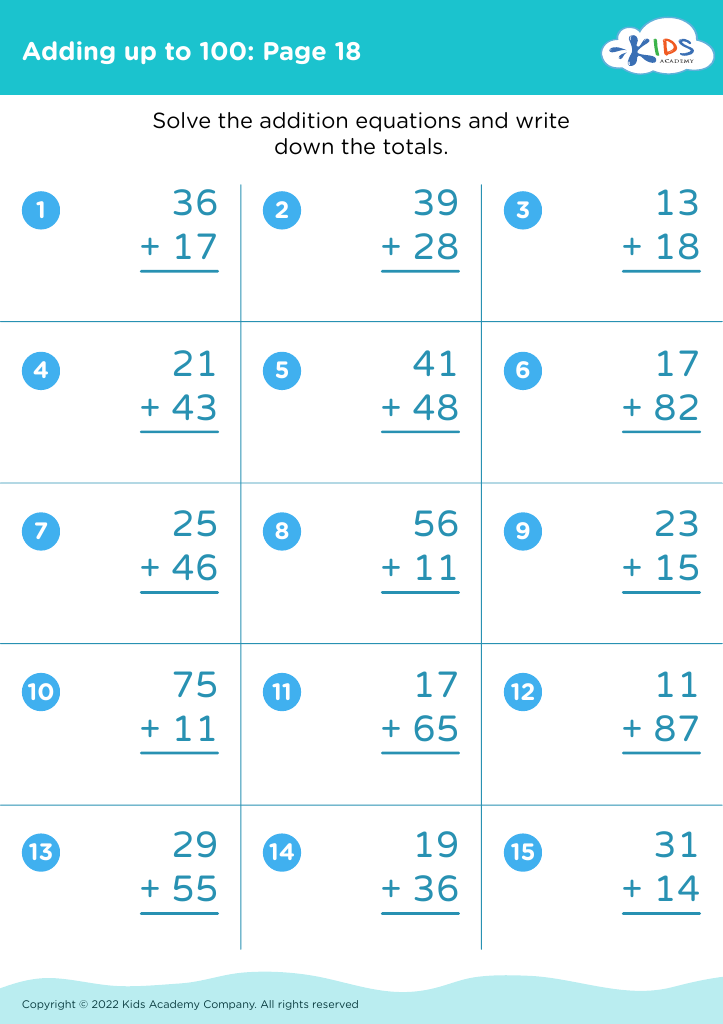Enhance number recognition Addition & Subtraction Worksheets for 7-Year-Olds
17 filtered results
-
From - To
Engage your 7-year-old with our "Enhance Number Recognition Addition & Subtraction Worksheets"! Designed to boost foundational math skills, these worksheets seamlessly blend number recognition with essential addition and subtraction exercises. Each worksheet offers a variety of fun and interactive activities, ensuring that learning remains enjoyable and effective. By focusing on visual aids and practical examples, children will strengthen their understanding of numbers and improve their arithmetic abilities. Perfect for home or classroom use, these resources make math practice approachable and appealing. Download now to support your child’s educational journey and help them build confidence in their math skills!
Enhancing number recognition, along with addition and subtraction skills, is crucial for 7-year-olds as it lays the foundation for a child's future mathematical understanding and overall cognitive development. At this age, children are transitioning from basic number awareness to more complex mathematical concepts. Mastery of these skills is necessary for everyday tasks, such as managing allowances or understanding time.
Parents and teachers play a vital role in fostering these skills. Number recognition helps children to identify and understand numbers in various contexts, reinforcing their confidence and proficiency in math. Effective addition and subtraction practices enable children to solve everyday problems and enhance their logical reasoning. Additionally, strong foundational skills can cultivate a positive attitude towards mathematics, reducing anxiety as they progress through their education.
Moreover, enhancing these skills encourages collaboration, communication, and critical thinking, essential skills for lifelong learning. By prioritizing number recognition and basic operations, parents and teachers can equip children with the tools they need to navigate academic challenges and the real world successfully. Engaging in fun and interactive activities, such as math games or puzzles, encourages a love for learning, benefitting children's educational journey and self-esteem in their abilities.




